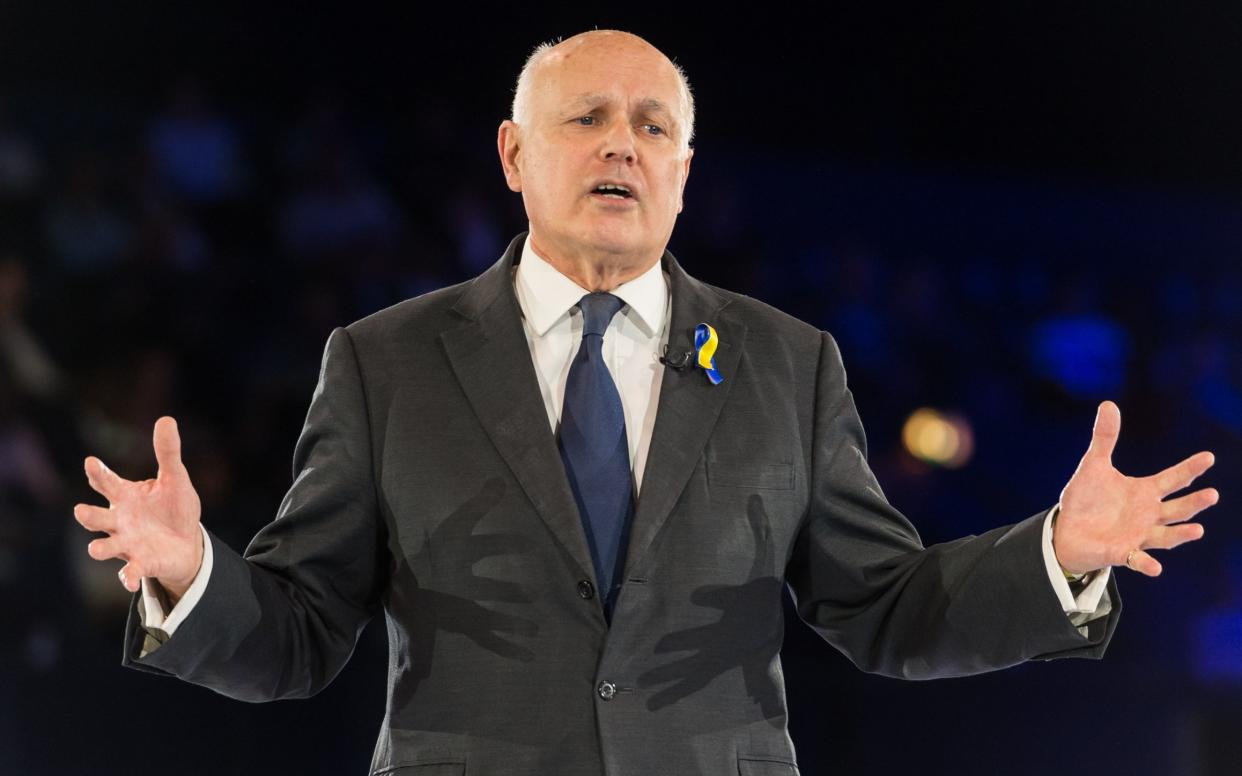Big charities squeeze out local heroes, new figures show

Smaller charities are being squeezed out and shut down by their bigger counterparts, which are grabbing an increasing share of funding, says a new report.
Charities helping Ukrainian orphans, families in need and cancer victims are among those that have been forced to shut. There has been a £4.6 billion fall in revenue at smaller charitable organisations, those with income of less than £1 million a year, since the Covid pandemic.
Bigger charities – with incomes of more than £10 million – have, by contrast, seen their revenues increase £4.5 billion over the same period, since 2019-20. The figures are revealed in a report by the Centre for Social Justice (CSJ), which was set up by Sir Iain Duncan Smith, former Tory leader.
Just 4 per cent of the biggest national charities now account for 85 per cent of all charitable income in England and Wales. The 16 largest – such as Save the Children, National Trust and Cancer Research UK – have more money than the combined income of 160,000 charities with revenues under £1 million.
The CSJ, which works with more than 700 charities and social enterprises, said the big charities were operating like outsourcing firms such as Serco and G4S, hoovering up high-value government and public contracts at the expense of smaller grassroots groups with close links to their communities.
The report says: “Large charities dominate public contracts where we see an over-reliance on charities with a national reach, who can consistently franchise into new communities and are first in line for public funding regardless of track record of local impact.”

“When you look at the relationship between large charities and the Government for delivering front-line services, there seems little difference between this engagement and how the Government uses professional outsourcing firms like Serco or G4S.
“The Government issues high-value contracts for services to the same few big charities, who have increasingly distant links to the people the contracts are designed to help.”
Around 5,000 charities have shut down each year in the past decade, with the number increasing amid the cost of living crisis of the past two years. Of those that have closed, 97 per cent are smaller charities, with incomes below £1 million a year, according to the CSJ.
The International Refugee Trust, which has provided support to orphans, including in Ukraine, announced last month it was closing after 35 years because it was unable to generate enough income to survive. Jo’s Cervical Cancer Trust shut last week also after 35 years because of “insurmountable” financial challenges.
In the report, one former chief executive of a CSJ alliance charity revealed it shut down after it lost a contract to a national charity “based far away from our community”.
‘Vastly inferior service’
The former executive said: “We had to close our doors, and as a result, we feel the local community are seriously missing out on the localised support we could directly offer. A large contributing factor to our closure was the loss of a contract, to a larger national charity based far away from our community.
“The larger charity did not have the local evidence of positive impact we did, yet won the contract anyway.
“We believe and know that the service they now provide is vastly inferior to what we were able to deliver, and in a truly fair tender process we would still be providing this service to the most vulnerable in our community.”
The collapse of small charities contrasts with the political rhetoric of both Rishi Sunak who described them as the “unsung heroes on the front line of our communities” and Sir Keir Starmer, who said it was “people on the ground … with skin in the game, who understand the problems best and have the best answers”.
It also contrasts with the public’s attitudes. Polling of more than 2,000 adults for the CSJ found only 20 per cent trusted larger national charities over small, grassroots, charities.
Three quarters (76 per cent) agreed that small, grassroots, charities knew their communities better than larger, national, charities.
Seventy-four per cent of UK adults were concerned that too much of the money donated to charities is spent on administration costs rather than service delivery.


